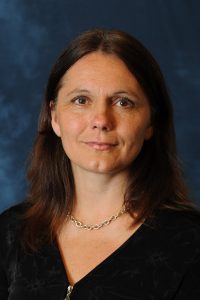Hometown: Higganum, CT
Current Position: Director, Allbritton Center for the Study of Public Life; Associate Professor of Dance, Environmental Studies, and Russian, East European and Eurasian Studies, Wesleyan University
Professional Interests: Social change, somatics, dance, civic engagement, environment
Why did you decide to join the Shevchenko Scientific Society?
I learned about the Shevchenko Scientific Society and read its publications in my home growing up. The Shevchenko Society was integral to my understanding the value of education and pursuit of knowledge – and the fact that Ukrainians have a long history of valuing education.
What do you value about membership in the Society? What is your most memorable Society’s event or publication?
I value the opportunity to read about the work that members of the society are doing in the US and abroad in the bulletin and newsletters – I feel proud to be connected to this community and intellectual legacy.
How did your interest in Ukrainian culture and society influence your career path?
In many ways Ukraine has earned a reputation as a champion of world peace – through its vigorous non-violent dissident movements and its steady civic commitment to pluralism and civil rights reform even in the face of aggression from its neighbors. The 2014 Maidan Revolution was a potent civically motivated, social justice-minded movement. Ukrainians took their future into their own hands. A quietly indomitable social reform movement continues today, even as Ukraine deals with Russian aggression in the East. Therefore, Ukraine offers an example of individual and collective resilience that can serve as a potent model for overcoming the political and environmental challenges being faced across the world today. My work in somatics is concerned with resilience and social change; as the 2014 Maidan Revolution unfolded, I decided to focus my research on Ukraine.
What is your current research/work project (or your hobby)?
My current research is twofold –Working in cooperation with the Ukrainian NGO ‘Development Foundation’, our aim is to promote psychosocial resilience and recovery from the conflict in Donbas through the implementation of a somatic program collaboratively developed over the past six years in Ukraine. The second and equally important goal of this project is to assess, in the context of these somatic programs, the ways in which psycho-social resilience and civic revitalization are grounded in the physical and creative resources inherent in each individual. The project involves care-providers in Donbas working with veterans, IDPs and others directly impacted by the conflict. This research will yield information on the specific context of Ukraine, as well as information on how this model can be modified and applied in other contexts around the world. The project is funded through the United Nations Recovery and Peacebuilding Programme (UN RPP) with financial support from the Government of the Netherlands and my institution, Wesleyan University.
What career advice would you give for new members of the Shevchenko Scientific Society?
Trust and follow your passion. It will sustain you when you face challenges in life and career. Take time to reflect regularly on your goals, values and priorities. Write a personal ‘artist manifesto’ whether or not you consider yourself an artist, that articulates the goals, values and priorities that propel your work.

